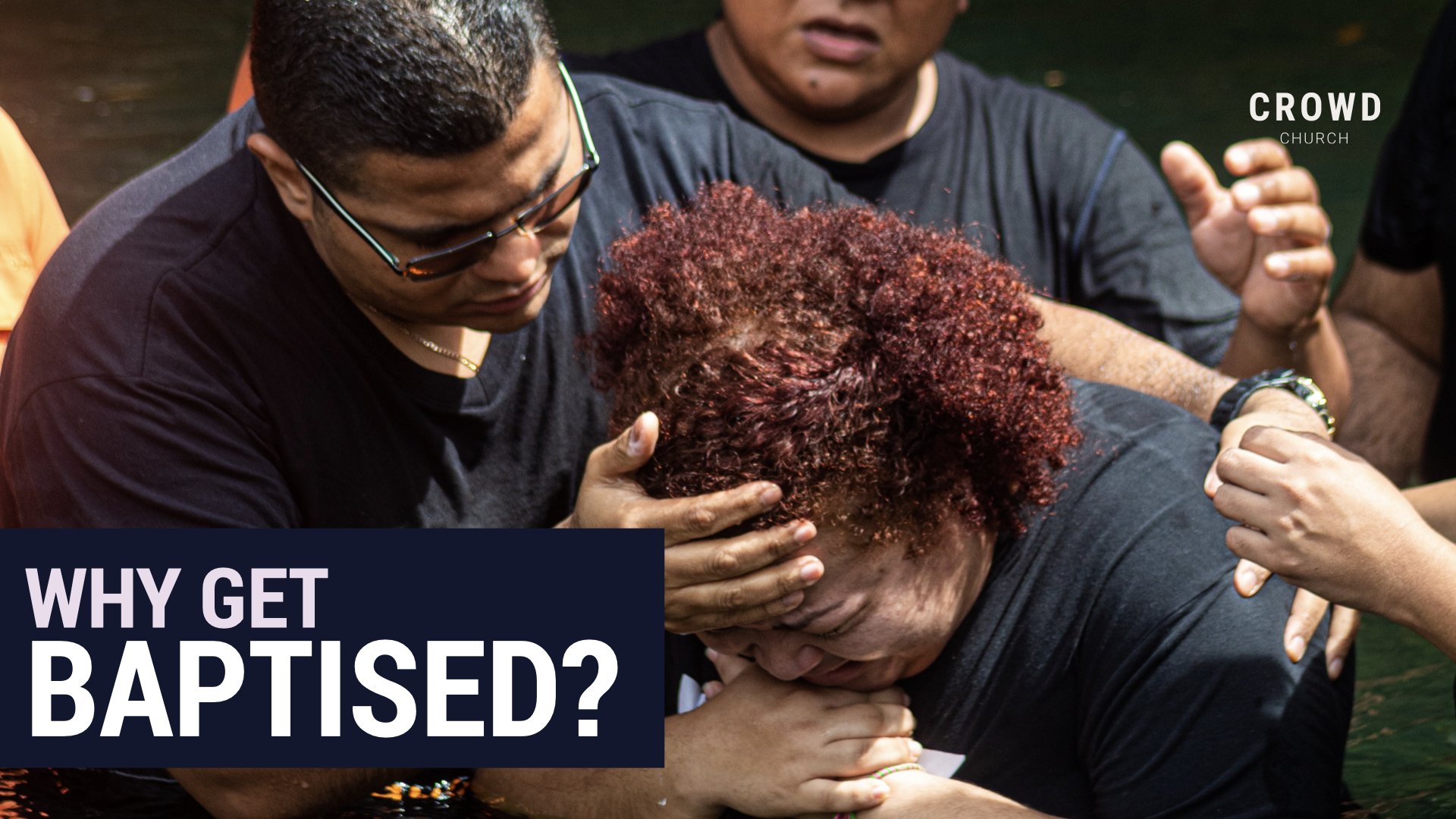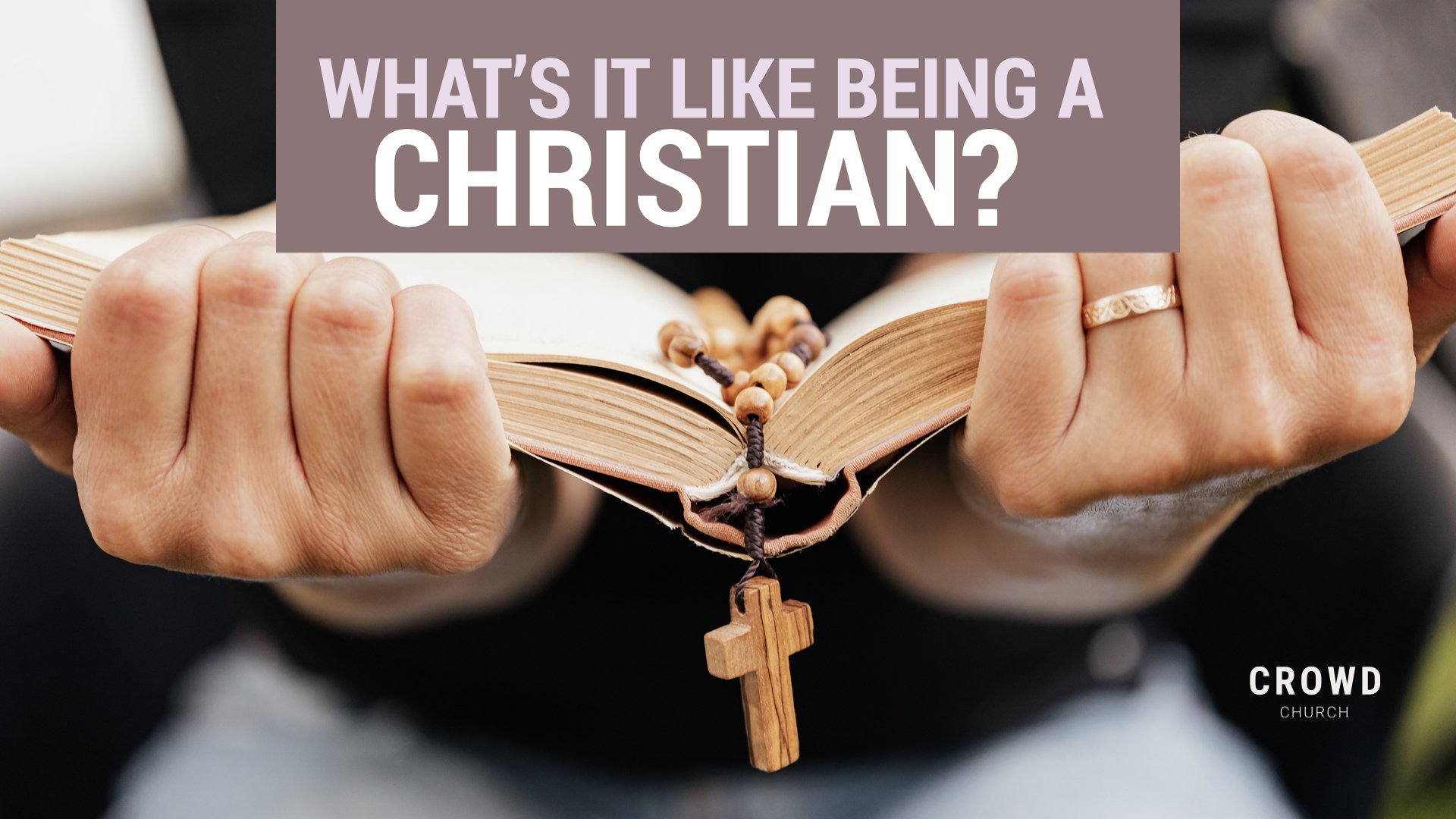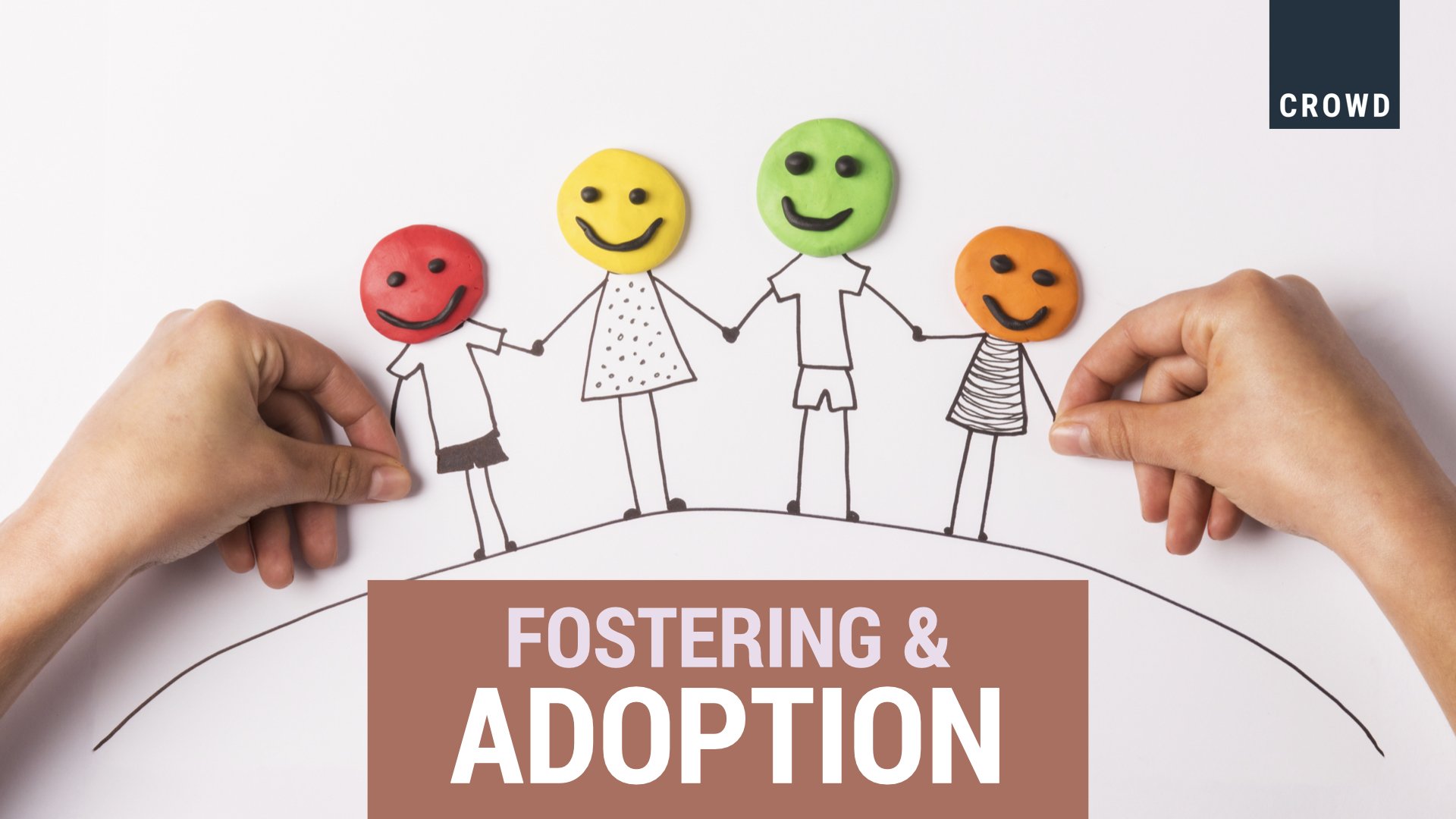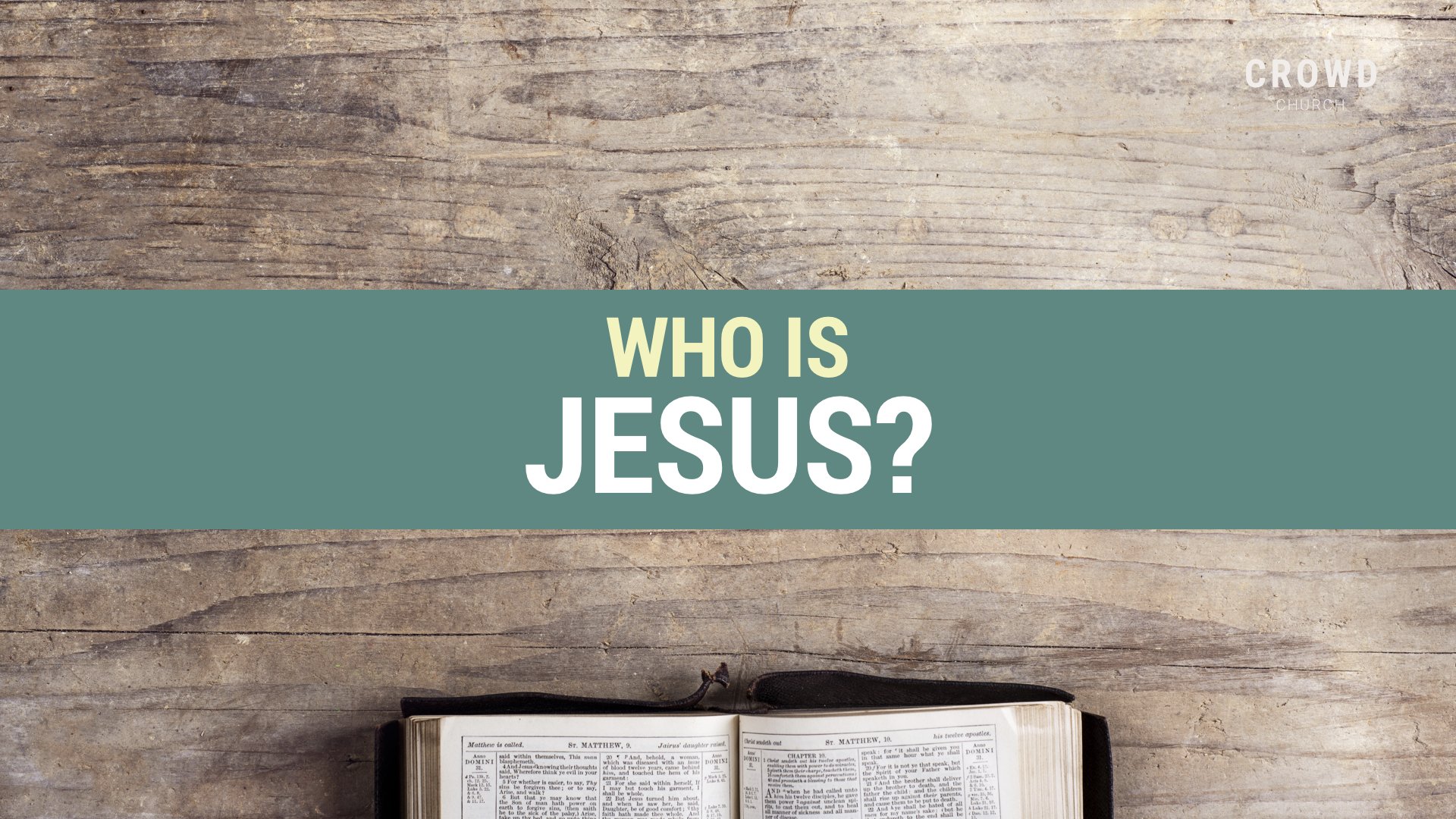What Does The Bible Say About Church?
Video Timeline
WELCOME
0:00 - Welcome with Matt & Tim
TALK with John Harding
04:35 - What does the Bible say about The Church?
07:36 - What Is The Church?
07:46 - The First Time The Church Is Mentioned In The Bible
08:19 - The Meaning Of The Word Church
10:29 - The Church Is Not The Building
12:15 - We Are The Church
16:29 - The Local Church
20:05 - What About Online Church?
PRAYER
27:00 - Prayer For Ukraine
WORSHIP
29:35 - What A Beautiful Name with Lyrics
CONVERSATION STREET with Matt, John & Tim
33:39 - Conversation Street
33:56 - Why Is The Church So Important To You?
37:35 - What Are The Differences Between Online And In-Person Church?
40:07 - How Can The Church Be The Hope Of The World?
42:54 - What Do You Do If A Member Feels The Family Are Not As Welcoming As They Could Be?
52:29 - What Does It Mean To Live A Surrendered Life?
CLOSING WORSHIP
57:40 - Only In You Jesus with lyrics
What does the Bible say about Church?
— John Harding
For the past seven years or so. I have been a church leader. That's been my full time job. Back when I was 18 years old and I was doing A-level chemistry, biology and maths, I felt God speak to me really clearly about becoming a church leader. So I went off to Bible college. I did a degree in theology, and then we moved to Liverpool to become part of a church called Frontline Church. For maybe 15 years or so I then worked as a school teacher in education whilst in all my spare time I continued to serve in that church leading worship, preaching, leading small groups, being invested in as a leader and helping to develop and raise up other leaders. I did all of that not because it was my job, but because I loved it, because I love the church, because it was great fun, because it was meaningful and worthwhile to invest my life in serving in a local expression of church. Around nine years ago, God then opened the door for me to leave teaching and to work for the church and eventually become the leader of the church, the senior minister. So I suppose you could say that my whole adult life has been very much focused on the church.
I'm speaking today from that point of view, as someone who loves the church, as someone who thinks a church is incredibly important and incredibly precious. That's my starting point for my talk today. The church is God's idea. The church is the object of Jesus's affection. The church is Jesus's beloved bride. The church is the focus of the Holy Spirit's power and work in the world. The church is the hope of the world. The church is both broken and beautiful. It's a bride being prepared for her bridegroom. It is a victorious army marching into battle. It is a fruitful vineyard that has been pruned and bearing fruit. It is a body made up of many diverse parts working together in unison. This is just some of the ways the Bible describes the church.
As a church leader, let me tell you that the church can be a right pain in the you know what. My biggest joy and frustration. It's been the cause of great pain for some people. The church has both harmed and helped many people. And yet, honestly, I can't think of anything more worthy of pouring my life into than the church.
What Is The Church?
But what is the church? What is the meaning of the word church? And what did Jesus say about the church?
The First Time The Church Is Mentioned In The Bible
Well, the first mention of the word church is in Matthew 16:18 where Jesus says to one of his disciples, Peter, "I will build my church". Now that's unusual language in the whole spread of the Bible. It's a new word, introduced by Jesus into the Bible, but the concept of church is woven through the entire Bible on every page.
The Meaning Of The Word Church
That word church, spoken by Jesus is the Greek word "Ekklesia". It simply means an assembly of people, a gathering, a community. It's from the verb "kal", "to call" and the prefix "ek", meaning "out". Literally, "the called out ones". So imagine a large group of people and God calls a group from within that larger group together and gathers them to himself, that's the Ekklesia. So Jesus is introducing a new word here, but it's not a new concept. This is actually a brilliant organisational leadership technique to use a new word to redefine an old familiar concept to help people break free from an old way of thinking about something. Introduce a new term. Jesus was taking that ancient concept of God's people gathering together, and he was redefining it in a radically new way. So, the whole story of Scripture, Eve is taken out the side of Adam, in the same way that Israel the nation is taken out of the whole nations of the earth. The church is called out from among the peoples of the earth to be this distinct people belonging to God in a new way, a radically different way to what had gone on before.
I've just got back from Israel, and if you go and visit a place like Israel, you'll see that throughout the region there are synagogues, the remains of buildings where the whole of the community gathered together to worship God, to read his Word together, gatherings, assemblies of people as a community of faith. And you'll also see in Israel the Temple Mount, the location where the first and second temple stood. Incredibly impressive buildings where people would gather together to worship God. And those gatherings could rightly be thought of as Ekklesia, as church - God's gathered people.
The Church Is Not The Building
But here's the thing, when Jesus died on the cross something incredible happened in that temple building, in the inner sanctuary, in the Holy of Holies. Now that inner temple, that inner sanctuary had this enormous curtain to keep ordinary people out of the presence of God. The curtain had two cherubim angels engraved on it to represent the two angels placed on either side of the paradise garden gates in Eden, keeping sinful humans from the presence of God. As Jesus died, that huge temple curtain was torn in two, right down the middle, from the top to the bottom. Why? Why was the temple curtain torn? Was it to let ordinary people into the holy place of God's presence? No, it wasn't to let people in. It was to symbolise that God had left the building. God had left the building. God was no longer going to dwell in special buildings built by human hands. He was going to dwell now in a new kind of temple, a new kind of building. That building, that new kind of church is simply this: it is you and I. Humans. After the cross of Jesus, we get so cleansed, so made holy that God now dwells in us. We are now the temple of the living God. That's what Paul says about the church in 1 Corinthians 3:16. The apostle Peter puts it this way, when he says that, each one of us has become like living stones built together into a living temple (1 Peter 2:5).
We Are The Church
We become the church. We are the church. That's why the church building is not the church. A building is not the church. We don't go to church. Church isn't something you go to on a Sunday. It's not even something you stream into your house on a Sunday afternoon. We are the church. The people of God become the church. When we receive Jesus, we get woven into a new spiritual community, a new spiritual building, the church. And when Jesus says, I will build my church, I believe that's what he's referring to. He's referring to one church, the entire church, the one universal church. To choose an old English word, the one Catholic with a little c, the one Catholic Church, the one body. All believers, past, present and future somehow mystically woven together into a spiritual temple in which God's presence dwells. We are the church.
So, when Christians say, I'm not part of a church. That makes as much sense as a person saying, I'm not part of humanity. When you gave your life to Jesus, you became intrinsically woven into something, it is who we are. A Christian can be no less part of the church than a human can be no less part of humanity, it's our identity. Now, there are two aspects to understanding church in the New Testament. There's this one mystical, spiritual church, and then there are descriptions of lots of local, mini, physical versions of that one church. You've got the universal church, and we've got local church. Both are in the New Testament.
Now, the Universal Church, all believers, past, present and future is a little bit difficult to get your head around because it exists right now in Heaven. So imagine Heaven for a moment. Imagine the throne room of Heaven described in the Bible. There is Jesus seated on a heavenly throne, and around him a great multitude of worshippers. Men, women and children from every tribe, group and nation radically, ethnically diverse. The martyrs are there, those who have gone before and died in the faith. There are those who've put their faith in Jesus and left this earthly, temporary life. They are there, and they are all gathered around the throne in the presence of King Jesus bowing down before him. It's unbroken encounter, and perfect surrender. That's the church.
There is so much more we could say about this gathering in heaven. But let me add one more detail to this picture of the gathering around the throne room that is literally mind blowing. Right now, you and I are there in this gathering of worshippers. Right now, we are part of that one gathering. Now, I don't know about you, but I can't quite get my head around that. But it's what the Bible says. King Jesus is seated on the heavenly throne, and you and I have been raised up with Jesus and are seated there with King Jesus in the heavenly places. We see it in Ephesians 2:6 and Colossians 3. It's part of what it means for us to be in Christ. Right now, we are part of that one gathering. And this is the big point that I want to make. That gathering is the church. That one universal gathering in heaven, a gathering and assembly, that is already taking place right now. That is what we mean by the church. All believers past, present and future gathered around the throne of King Jesus in encounter and in surrender.
The Local Church
And so for a local church to really be a local church, it has to be an expression of the one church here on Earth. That's the whole point of the Christian life isn't it? It's to bring heaven to earth, to be heaven on earth. And so I think we can best describe a local church like this. It's a group of believers, gathered with King Jesus at the centre in encounter and surrender. It is an echo of Heaven on Earth, it is a shadow of heaven on earth. If you know your Old Testament Bible, you know that's exactly how the tabernacle tent was described to how the temple was built. They were built on the blueprint of that one, heavenly gathering. So when Jesus then goes on to say, "when two or three are gathered together in my name, there I am in the midst of them" (Matthew 18:20), Jesus is describing the physical earthly dynamic of church, a group of people gathered with King Jesus at the centre. It's that simple, that pure, that uncomplicated.
Now, for the first 300 years of Christianity they got that. Christians did without special buildings, they gathered mainly in homes, sometimes out in fields, sometimes on beaches. They gathered to worship Jesus, to encounter Jesus, to bow before King Jesus in surrender. Often those gatherings were illegal. If the authorities found out about them then they were arrested, imprisoned or even killed. But their gatherings were reflecting on Earth the reality of that heavenly gathering.
And these churches, these house churches, they multiplied at a massive rate. The early church spread within 300 years from the time of Jesus across the known world as far as places like England. I understand that the fastest growing church in the world today is in Iran. The church in Iran is growing at a rapid rate, but it's small groups of believers meeting in threes and fours in people's homes. And then as new believers get added to those groups, they multiply into new groups. It's all done in secret because it's illegal to gather as Christians in Iran. The Chinese underground church has been meeting and multiplying in this way for several decades now. The Chinese Communist Party has been trying (unsuccessfully) to close these unregistered church groups down. However, it's now estimated that there are over 68 million Christians gathering in this way in China. That makes Communist China well on its way to becoming the largest Christian community in the world. Christians meeting in the home. So church has never been about church buildings. That's why when Jesus said, "I will build my church", my Ekklesia, He was deliberately using a different word to redefine an ancient concept, the concept of being the people of God together.
What About Online Church?
Communities encountering the presence of God, learning how to surrender to God has never been about the buildings. But then, this huge shift took place around two years ago, didn't it? COVID struck. The world went into lockdown and churches were forced to close. Only, churches weren't closed. Church buildings were closed, but the church became more alive and more vibrant and more open than it had been for many years. And Christians started to innovate and find new ways of being the church together. I suppose that's what we're doing today. That's what Crowd church is, isn't it? It's a group of people gathering together, with Jesus at the centre to encounter Jesus, and to learn how to surrender our lives more fully to him. We're an an expression on Earth of that one Ekklesia in heaven. Before lockdown, if I'm honest, I wasn't really sure about the idea of online church. I thought it was always going to be better to meet physically. Of course, COVID stopped us from doing that and we discovered quite unexpectedly that all the things that make church what it is here on earth could work online. We could have fellowship together online, community. We could encounter Jesus and worship Jesus together online. We could gather around God's word and allow his work to challenge us and shape us together, online. We could give online. That's an expression of worship and surrender, giving. We could pray for one another online and experience God's healing power at work online. We could make Jesus known online. All the things that are expressions of that one church in heaven. All the things that are part of being a local church here on earth could be fleshed out in the ways that we are doing them here today. Who would have thought?
As a church leader, I hear those who say things like, "online church isn't real church, it's only real church if it's in person in a building. It's second rate." But of course, as we've seen, it has never been about building. You can go to a church building and still not be part of the church. Going to church makes you no more a Christian than going to McDonald's makes you a hamburger, or sitting in a garage makes you a car. You can go to a church building as a Christian and meet with other Christians for a church service an hour and a half on a Sunday and not engage in fellowship, not engage in worship, have no intention of allowing that experience in God's word to call you into a more surrendered life. So it really doesn't follow that somehow being physically present is automatically a better way of being church than gathering virtually online as we're doing here today. Jesus is still building his church. Inherent in that word church is innovation. And one of the ways Jesus is building his church today is through online communities like here at Crowd church.
Of course, we still need to be committed to that community, to belong to serve to know others, and be known by others in community. And we'd encourage everyone who connects into Crowd church to find or to form physical communities of believers, physical expressions of church, even if it's in twos or threes. In fact, it's better often in twos or threes. But Jesus is building his church. One assembly, one gathering in heaven, around the throne, in encounter and surrender and our job is to echo that, flesh that out here on Earth in a myriad of different ways. Our job is to learn how to be the church, bringing Jesus's presence into the midst of his people because that is our eternal destiny.
The church here on Earth is not perfect, but it is precious, and it is powerful, and we belong to it through Christ as we enter into his family through His saving work on the cross. But of course, that demands something of us. We have to play our part here on Earth in preparation for eternity. And as we do so, well, let me tell you, that is when the Christian life really starts to make sense, and really starts to bear fruit. And that is what I believe the church is all about.
CONVERSATION STREET
With: Matt Edmundson, John Harding & Tim Bond
What is Conversation Street?
Conversation Street is part of our live stream, where the hosts (in this case, Matt, John & Tim) chat through John’s talk and answer questions that were sent in through the live stream. To watch the conversation now, click here.
Why Is The Church So Important To You?
Matt: It is great to have you both here. You are two men who have devoted a significant portion of their lives to church. Tim pastors a church in Jersey. John pastors Frontline church here in Liverpool which Crowd is part of. You've both, in affect, given your lives to this thing called church. John, you mentioned a little bit in your talk why. Tim, why have you given the majority of your life to this thing called church?
Tim: There is no better investment. Life is an investment. Each breath we take, each thing we do, each thing we choose to give our time to is an investment because we select what we give our time to. Therefore, everything we give our time to is something we don't give our time to. For me, the church is the centre of God's plan for the world.
Matt: John, what about you?
John: So, I said in the talk that I felt a sense of God calling me into that. I don't think that leading the church is any more valuable than serving God as a Mum, at home or as a teacher, or anything else. It's about being obedient to what God calls you to. We grew up as a very poor family. My dad died when we were 18 weeks old. At that time, there was a local church that absolutely loved us and served us. And I thought, where else would you find a community that shows such love? People became like my family. And so when I pray for Frontline Church, I pray everyday for my spiritual family. I love them like my family. So, in one sense, there's nothing virtuous is there? We need to belong to something. Most people in the church only find out its value when something goes wrong. What you then find is a community that loves and cares and wraps around. That's why, like Tim, I think it demands something of us in investment.
What are the differences between online and in-person church?
Matt: You said in your talk that before COVID you weren't that convinced about online church. What do you see as some of the key differences with in-person church and online church?
John: I mean, if you want to go theoretical, what is it about church that makes it church? I'm not sure there has to be differences. We've never got as far as exploring what would happen if someone wanted to get baptised in the Crowd community. But as far as I'm aware, we've encouraged people who've connected through this to belong to local communities of believers in the flesh as well. So I think what happened was, necessity forced us to invent (as it's often done), and we discovered that the Holy Spirit still moves even when we're not in the same room. I prayed for people in a Zoom meeting to be healed, and they experienced physical healing. We found that God's Holy Spirit was not restricted by the online stuff. A lot of people say, "I'm not sure about it", probably around that comment Tim made to do with investment. We don't want church to become a consumer thing. Christianity is not a self-help programme to aid you in becoming your best self. It's not about self-individualization, it's about learning how to surrender in community to God as we serve one another. And so you know, you can go to a physical church and never do that. You can never let it ask anything of you, never let it challenge you. You can go in and walk out the door. You can go online church and do that. And you can do online church and serve, and encourage others, and commit and allow it to shape you and challenge you. And those are the aspects that I think make church church. Other than the very obvious physical things like space and physicality, I'm not sure there is a lot of difference really.
How can the church be the hope of the world?
Matt: Tim, what do you think about this phrase, the church is the hope of the world. What does that mean to you?
Tim: We were talking at church this morning about us as God's people being the presence of God. There's this idea of the church being the body of Christ which I love for a million different reasons. All different parts of the body doing different things. A mate of mine likes to say church is like granola. Just full of fruits, nuts and flakes, but I like to think of it like a granola bar. Fruits, nuts and flakes like me, stuck together with Jesus, right? All different kinds of personalities, even different kinds of views and approaches and passions and emphases with Jesus at the very core of who we are, being an expression of the presence of God in the world. So, the online church question is a really good question. Again, love what you're doing. I think for me, I need a physical expression because I sometimes need a physical reminder that there are people that need love. And so sometimes being with others in small communities like you're also doing in Crowd gives an opportunity for me to think, who am I going to love well? Who am I going to be the presence of God to today? Of course, it's not just about paying for someone's shopping, but like John said there, the potential for people to experience the love of God through the church being their family is something of incredible beauty.
What do you do if a member feels the family are not as welcoming as they could be?
John: Well, let's remember that Jesus is perfect, and the church is not - it's being perfected. I think it's very easy to go into the building and expect everyone to come and wrap around you. That's why I made that point about encounter and surrender. I think we want to become better at welcoming people, both online and in physical spaces. We want to grow in that. If church is truly spiritual family, at some point, I'm going to say to my Mum, when she's round at family gatherings, oh sorry, Mum, not quite given you the attention I should have done. But I love you. So I just think churches should operate in grace. We need bags of patience and love for one another. Dietrich Bonhoeffer talks about cheap grace and costly grace, cheap discipleship and costly discipleship. It's when someone says, well, I just go to the forest for a walk on my own. The forest is my cathedral, it's my church. And of course, actually, that really demands very little of us as a person. So when Tim talks about nuts and flakes or whatever, the point is, when you rub shoulders with people who are different to you, who you would not select as friends, perhaps you have different worldviews or you're at different stages of life too. Where else does that really happen in society where we share a mutual love for one another? But that means I'm going to encounter people who are different to me, who behave differently. Maybe you think I ignored you before. I didn't ignore you, I just perhaps didn't see you or maybe somebody just told me some difficult news or something like that. So we're imperfect people, but I think that's part of the beauty of church. It's part of why it's so precious. We had a post-service picnic and we had sat around our table people who hardly even spoke English. I wouldn't pick that for my own sort of benefit and enjoyment because it was challenging and we had to make an effort. So, why aren't churches as friendly as they should be? Because humans are humans. Let's all be gracious to one another, and let's all help the church that we are part of (if we're part of it). I don't think we need welcome teams in church. I think all of us need to welcome one another. And we'll do that better at certain times than others.
Tim: Yeah, totally. I love these ideas. My failsafe for all interaction with other people is, if I go in expecting to give, everything's an upgrade. If my heart is to encourage someone, to love someone, to give something, to raise someone up, to just give from who I am and through what God's given to me even if I feel like I've got nothing to give, then it's incredible how much God fills you in those moments. It's the topsy turvy kingdom, isn't it? Sometimes we can be recipients more when we're givers. It's always gonna break down if I go into church thinking, "if someone doesn't say hi to me, or ask me why I'm frowning, I'll be upset". You're on for a losing streak.
John: And imagine if everyone did that, Tim. Imagine what sort of community we would create. When we went on holiday round Malaysia, Southeast Asia, we went to church as a family. I think someone actually thought I was part of their welcome team because I'd seen some folks who didn't look like they knew what they were doing, and so I got into a conversation with them and said, "oh, we're going up there as well, come with us, I'll show you the way". And they were like, "have you been part of this church long?" I'm like, no, I've just come to visit today, on my holiday. I think that's a much healthier attitude to have.
Tim: With that kind of attitude, it spills out into how we interact with people outside of the church as well. I had a brilliant interaction. We were in LA and I went surfing at this random beach. I'm out the back, and I'm surfing. This guy comes up to me, he's like, "Hi, my name's Jerry". And I'm like, "Hi Jerry. My name's Tim." And he says, "So what do you do?" So I just start to say I'm part of the Church of Jesus, that I love Jesus, and I'm a pastor. Anyway, he just shouts to the beach. "Hey, Sherry, he's a believer!" Jerry and Sherry they were called, it was brilliant. And, suddenly, it just gave us this opportunity to interact and to pray together and to go into a different space of church.
I think if you're wanting to speak encouragement into people's lives outside of the church, people are generally blown away because they just don't get it. They don't get it when you're on a bus and someone says, "ah, I really like the jacket you're wearing. Nice one." We're normally so used to people pulling us down. So, I love it. I think it should overspill.
John: We do this thing in Liverpool on the second Sunday of the month, we call it Scattered Sunday. We don't gather everyone into our building on the second Sunday. People meet in smaller community groups, and they do litter picks, and they have a local Scout hut and put on board games for kids, or they do all sorts of creative things together in community in a way that allows others to connect. And people are like, what group is this? Why would they be doing this? People often comment on the interactions that they observe between people. It's not that we're special people. It's that God has touched our lives in such a way that we want to include others into that. A few people have said to me when we stopped meeting in the building on the second Sunday of the month, about five or six years ago, "Oh, isn't it shame that the church is closed? That there's no church?" But of course, we are out being the church in a myriad of places and a myriad of ways. We're being spiritual family together in a way that includes others into it.
I've heard people say things like, "well, we don't go to a church. We're not part of a church because mum, dad and two kids just have brunch together on a Sunday morning, and we maybe pray together." Now that is a good thing to do. Is it an expression of church? Well, it could be or it couldn't be depending on things like, does it help you to encounter Jesus? Is it inclusive? Can you invite others in or is it just you hiding in your home? Is it a way of reaching out to people? Does it call you to surrender? Does it ask anything of you? Because these are the things that I think we see when we read the Bible, particular in the New Testament. That's why I say it's encounter and surrender.
What does it mean to live a surrendered life?
Matt: John, you keep mentioning this surrendered life. What does that mean?
John: Well, the reason I say it is because the confession of the first Christians was Jesus Christ is Lord. I think if we want to come up with a definition of what it means to be a follower of Jesus, it's someone who says, my heart is like a throne and I'm going to take myself off that throne and allow Jesus to sit on that throne. So I'm trying to live in a way that makes Jesus the king of my life. Jesus, I want to walk in your ways, I want to live in obedience to you. I think that is really what it means to be Christian. It's less about did you pray a prayer in 1983? But more about are you walking under the Lordship of King Jesus? I think church is a gathering of such people who are doing that together in community. It's about making Jesus king, letting him reign and I think that is really at the heart of what makes church church.
Tim: The the only possibility for unity is that Jesus is the standard, he's the plumb line, he's the king, he's Lord of our decisions. He causes us to shape the way we think and shape the way we act because of who he is.
I was reading Romans 8 today about about how he's predestined us to be conformed to His likeness. We've been called to be formed to the likeness of Christ. So we will become like him as we observe and make him king and follow what He's calling us to do.
Bible Verses About Church
Romans 12:4-5 - For just as we have many members in one body and all the bodies do not have the same function, so we, who are many, are on body in Christ, and individually members one of another.
Matthew 28:19-20 - Go therefore and make disciples of all the nations, baptizing them in the name of the Father and the Son and the Holy Spirit, teaching them to observe all that I commanded you; and lo, I am with you always, even to the end of the age.
Ephesians 5:18-21 - And do not get drunk with wine, for that is debauchery, but be filed with the Spirit, addressing one another in Psalms and hymns and spiritual songs, singing and making melody to the Lord with your heart, giving thanks always and for everything to God the Father in the name of our Lord Jesus Christ, submitting to one another out of reverence for Christ.
Acts 20:28 - Be on guard for yourselves and for all the flock, among which the Holy Spirit has made you overseers, to shepherd the church of God which He purchased with His own blood.
Colossians 3:15 - And the let the peace of Christ rule in your, to which indeed you were called in one body. And be thankful.
Acts 2:46-47 - And day by day, continuing steadfastly with one accord in the temple, and breaking bread at home, they took their food with gladness and singleness of heart.
Ephesians 2:19 - so then you are no longer strangers and aliens, but you are fellow citizens with the saints, and are of God's household.
















